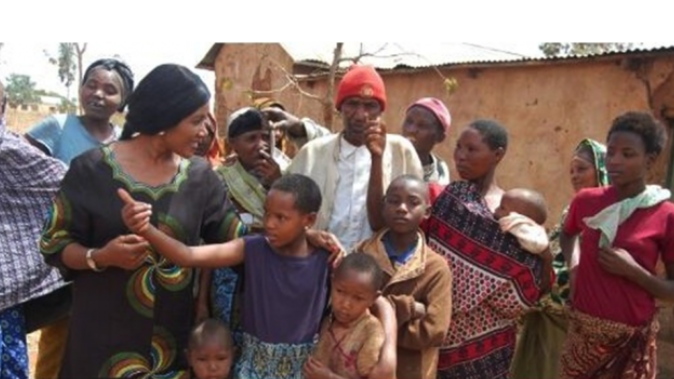Groundbreaking Workshop on AI and Technology-Facilitated Gender-Based Violence at AWiM24
Trending
Sunday June 1, 2025
Trending

Joyce Kiria talks to Fadhila Sadala of AWiM News about why she decided to establish her organisation with a focus on fighting for girl’s rights and gender equality
Growing up in the Kilimanjaro region located in the northeastern part of Tanzania. Joyce Kiria always wanted to be a journalist, as a mass communicator to reach many communities to fight the patriarchal systems that undermine women’s rights and gender equality.
Joyce, 41, a mother of two children, completed Standard Seven in 1996 courtesy of free primary education by the government. She failed to continue with her studies due to her parent’s poverty which forced Joyce to be married as a young girl. She fled her marital home to Dar es salaam city and served as a house girl. While there, she experienced a lot of challenges.
Then she got a job in a blanket factory where she couldn’t work for a long time because she had chest complications.
She decided to get a job in the business of making bites and selling clothes at Kariakoo Dar es salaam from the money she earned when employed in the industry.
“After my stint as a house girl for two years I managed to save a little money and opted to start a business,” she said.
Joyce Kiria volunteered and experienced a lot with different media and organisations such as clouds media group, channel ten and East Africa with the sole purpose of fighting for girls’ rights and gender equality.
She is now a popular presenter of a women’s live programme broadcast by East Africa TV every Thursday of the week fighting for women’s rights.
The Dream of forming Haki za Wanawake (HAWA) Swahili word meaning women’s rights was born from her childhood experiences of having been forced to drop out of school at the age of 14 due to poverty and to supplement her parents’ income.
“I started working as a house girl at the age of 15. This was a very painful experience for me I’ll never forget as my dream was to complete school and become a journalist,” she said.
She added that this experience however didn’t kill her resolve to work beyond these circumstances and shape her future.
Joyce saw an opportunity to launch her childhood dream. She gathered her courage and asked for an opportunity. This was the turning point of her life.
Through her organisation, she is convinced that her life should be a living testimony that with determination and a clear purpose for life, people can rise beyond their circumstances.
” Girls and women can rise beyond their circumstances, change and control their destiny,” she said.
Many women and girls today continue being victims of patriarchal socio-cultural beliefs, attitudes and vices which demean the worth of a woman in the modernised world hence an infringement of their human rights
“HAWA Organisation is determined to contribute to opening the eyes of girls and women who are still suffering under the burden of ignorance and subservience to a world full of opportunities so that they can work towards redeeming their hopeless situations just as I did, “she said.
The organisation’s mission and vision is an all-inclusive society committed fully to supporting children and women to maximize their potential, improve their socio-economic and citizenry rights, and create an enabling environment that fully engages and inspires girls and women to rise beyond their circumstances.
“I was forced to drop out of school and get married at the age of 14 due to poverty so as supplement my parents’ income,” she said.
As a popular presenter at a women’s live programme on East Africa Television every Thursday of the week to give women and girls awareness by raising their voices from different rural areas where the issue of gender-based violence and sexual harassment occurs.
“Women and girls supposed to have education with all knowledge and skills from the issue of sexual harassment and gender-based violence, “she said
Girl’s centre
Dealing with the provision of education to girls’ professionals in housekeeping aim is to make women and girls independent.
“I always empower and rise their core abilities in housekeeping to save their lives from income earning”she said
“I normally empower women and girls to fight for their lives through generating their income from small business,” she said.
She works with police officers to provide education and awareness on the issues of gender-based violence.
A 2019 report by JSI, stated that in Tanzania, nearly one in three girls experience a form of sexual violence before turning 18. Almost four in 10 women have experienced physical violence, five women over age 15 report experiencing sexual violence, and one in five women over the age of 15 report experiencing sexual violence in her lifetime, increasing her chances of contracting HIV.
HAWA works to highlight cases of violence against women and girls, and also provides a platform for the community to debate positively on the aspects of culture which demean women to set up structures which support equality and equity of both genders.
Every day girls face barriers to education caused by poverty, cultural norms and practices, poor infrastructure, violence and fragility. Girls’ education is a strategic development priority for the World Bank
According to the World bank. In 2022 ensuring that all girls and young women receive a quality education is their human right, a global development priority, and a strategic priority for the World Bank.
Achieving gender equality is central to winning the goals of ending extreme poverty and boosting shared prosperity. To ensure that all education projects are gender-sensitive, and work to overcome barriers preventing girls and boys from equally benefiting from countries’ investments in education.
We’re not gonna spam. We’ll try at least.

Copyright 2020. African Women In Media
Copyright 2020. African Women In Media
Recent Comments